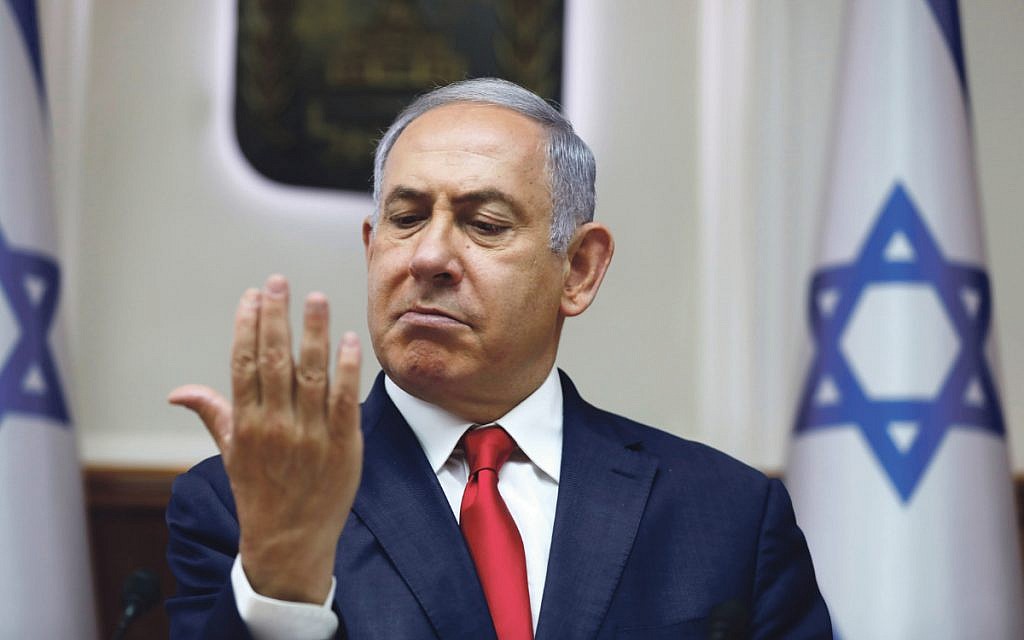Special Report: Does Bibi still have the upper hand? Israel decides, again
With just under three weeks until the second Israeli election of 2019, we take a look at the major players seeking power and whether the incumbent PM Bibi Netanyahu can hang on
With 19 days until this year’s second Israeli election, most voters seem apathetic. If analysts are to be believed, the smallest margins that in April gave Likud an advantage may have dissipated.
The balance, if true, has swung slightly left, meaning the two big blocs – right and centre-left – are now tied.
One seat could make all the difference and, since April, there have been several mergers, meaning bigger pulling power for fewer parties.
Get The Jewish News Daily Edition by email and never miss our top stories Free Sign Up
Once again, it’s all up for grabs…
Likud
Few eyebrows were raised recently when dozens of Likud parliamentarians were made to swear an oath of allegiance to a party leader facing the prospect of prison for bribery. Such is the one-man reality of Israel’s largest right-wing party these days. In most other countries, Benjamin Netanyahu would be an electoral liability, but polls repeatedly show that Israelis still prefer him to lead the government, followed closely by former military chief Benny Gantz at Blue and White. Since April’s election, the centrist four-seat Kulanu party has folded and its leader, Moshe Kahlon, has joined Likud, presumably bringing votes. ‘King Bibi’ has also now become the longest-serving prime minister in Israeli history, surpassing David Ben-Gurion. His status and knack of peddling hard to the right just before the ballot should see him match April’s 35 seats.
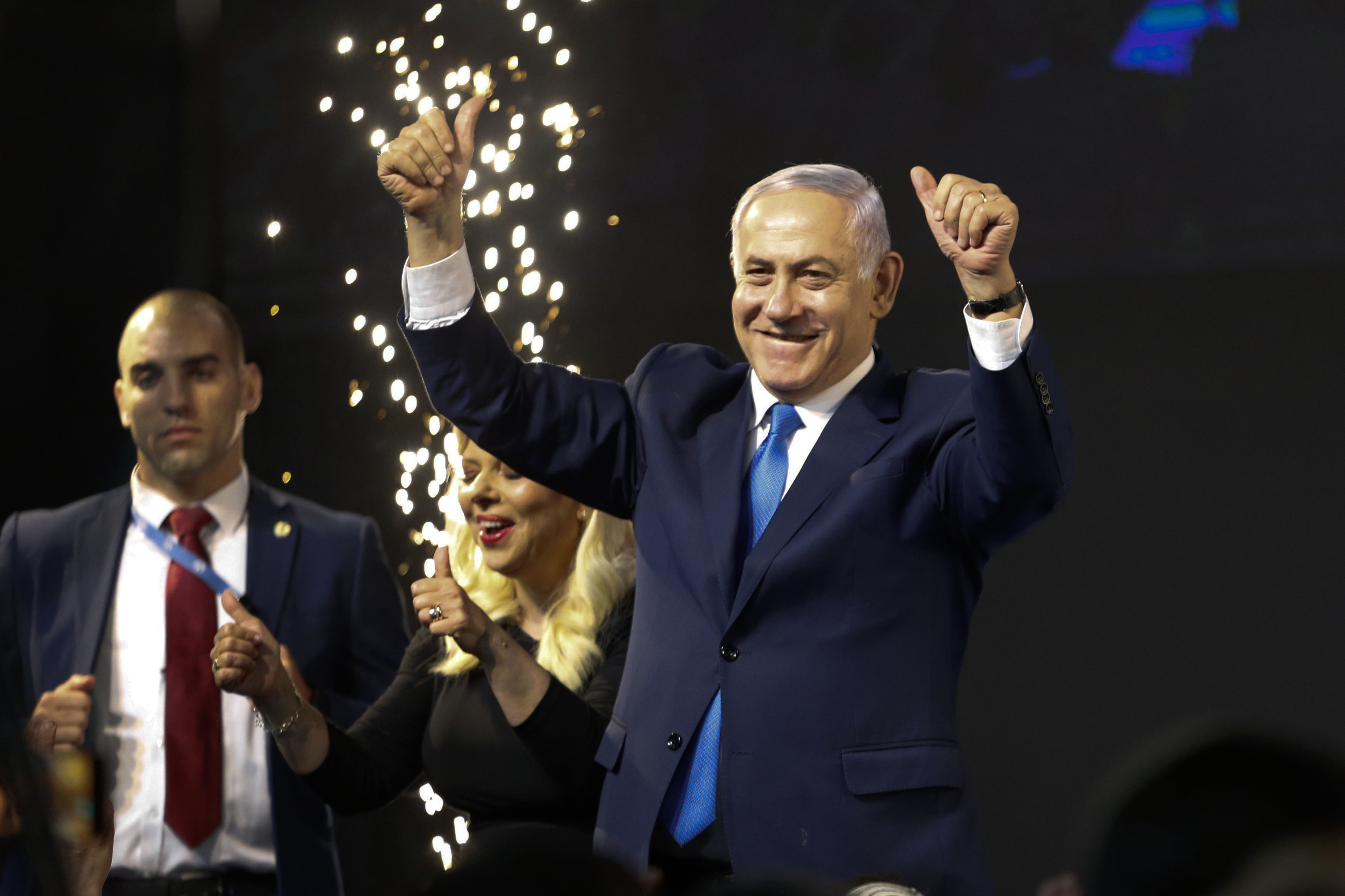
Yamina
This new hard-right union of smaller parties favoured by the national-religious settler movement is headed by Ayelet Shaked, a former justice minister who wants to limit the powers of Israel’s Supreme Court. Rafi Peretz, a former education minister and rabbi who endorsed gay conversion therapy until last month, is second on the list.
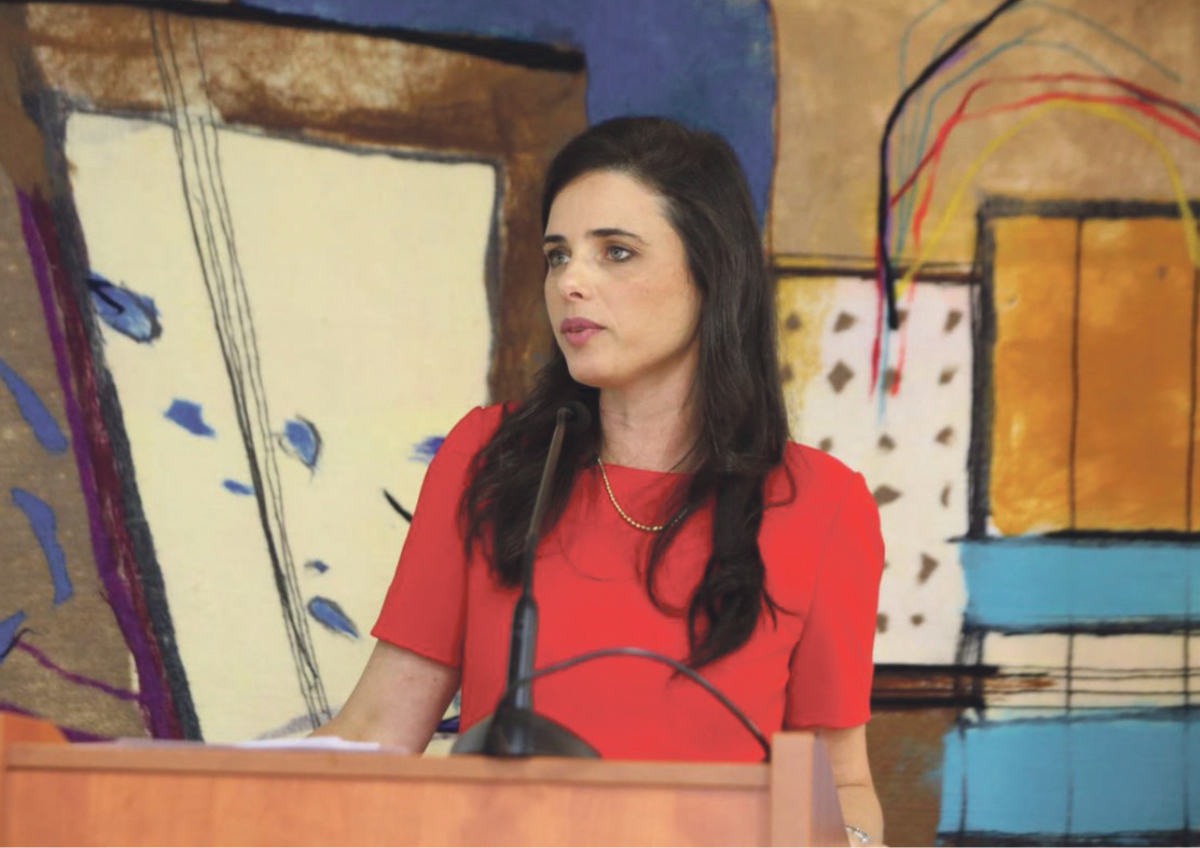
Shaked’s former ally, Naftali Bennett, a former special forces soldier desperate for the defence ministry, is also in the mix, as is Bezalel Smotrich, a “proud homophobe” who wants a “Torah justice system” and who thinks LGBT+ Jews run the media.
This month, Smotrich criticised Netanyahu as “weak” for not allowing a major Charedi concert to segregate the audience by gender. Pollsters think the merged group could soon splinter, given its obvious internal differences, but if its veneer of unity holds until election day, it could scoop 11 to 12 seats.

Yisrael Beitenu
Led by former defence minister Avigdor Lieberman, this right-wing secular party has a mainly Russian-speaking base and routinely wins enough votes to make Lieberman a parliamentary kingmaker.
After April’s election, his refusal to compromise on the Charedi draft exemption (he wouldn’t agree to it) meant Netanyahu was unable to form a government, which in turn led to this election.
Surveys have since shown Lieberman’s stubborn stand on strictly Orthodox Jews being exempted from military service is a vote-winner. In April, he won five seats. Now he may get up to 10.
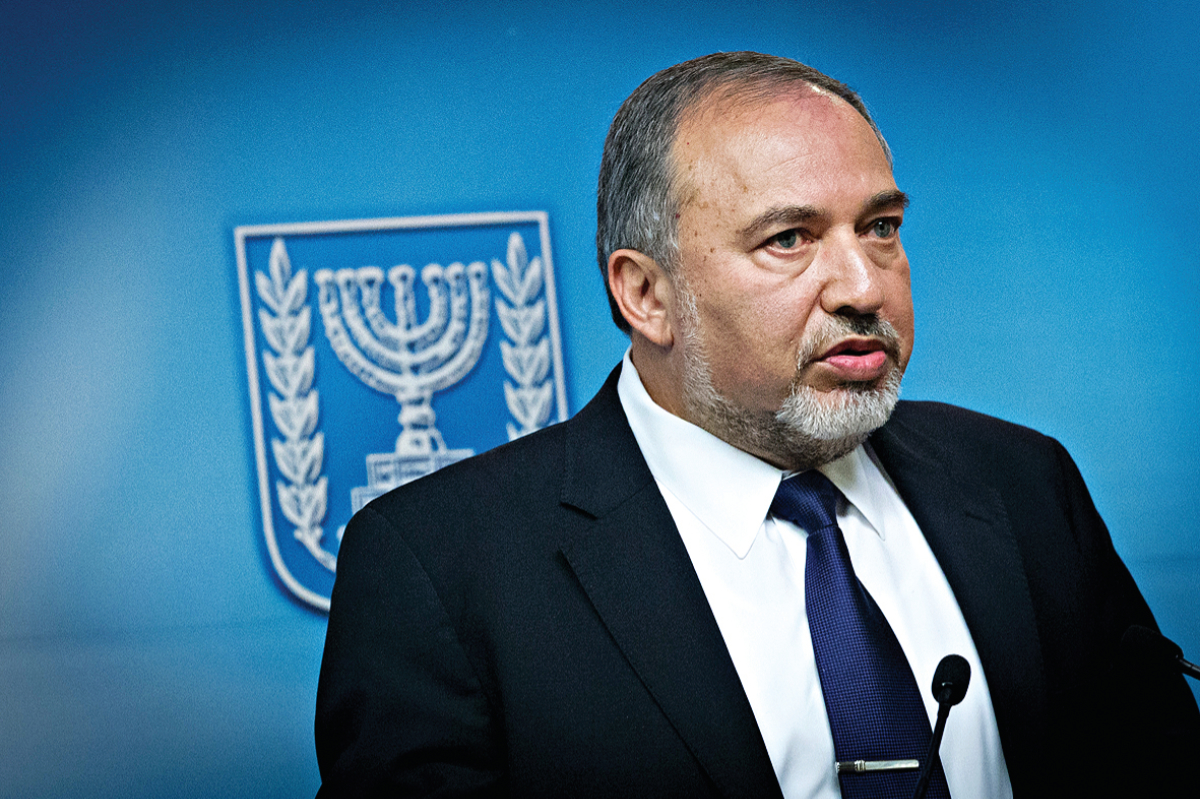
Joint List
The Arab parties won a combined 10 seats in April by running on two separate tickets. For the 2015 election, they combined under a Joint List led by respected lawyer Ayman Odeh and won 13 seats.
For September’s election, the lesson that they’ll get more votes combined seems to have been learnt. Once again, they march under the same banner.

Blue and White
In April the then-new party won 35 seats, tying with Likud, but it didn’t have enough parliamentary friends to be asked to form a government. Often labelled ‘centrist’, B&W has since hardened its stance.
At the Israel-Gaza border in early August, joint leader Benny Gantz said: “The next time something happens here, we’ll make sure the round (of fighting) is the final round… We’ll pound the whole area with fire. We’ll operate on the ground whenever we want, where we want, as much as we want, and for as long as we want.”
Yair Lapid, the party’s other joint leader, echoed Gantz, saying: “On our watch, Hamas won’t get suitcases full of dollars. They’ll get a guided missile right into their home.” Peaceniks’ hopes now rest on this being a bluff in order to win right-wing votes from under Netanyahu’s nose.
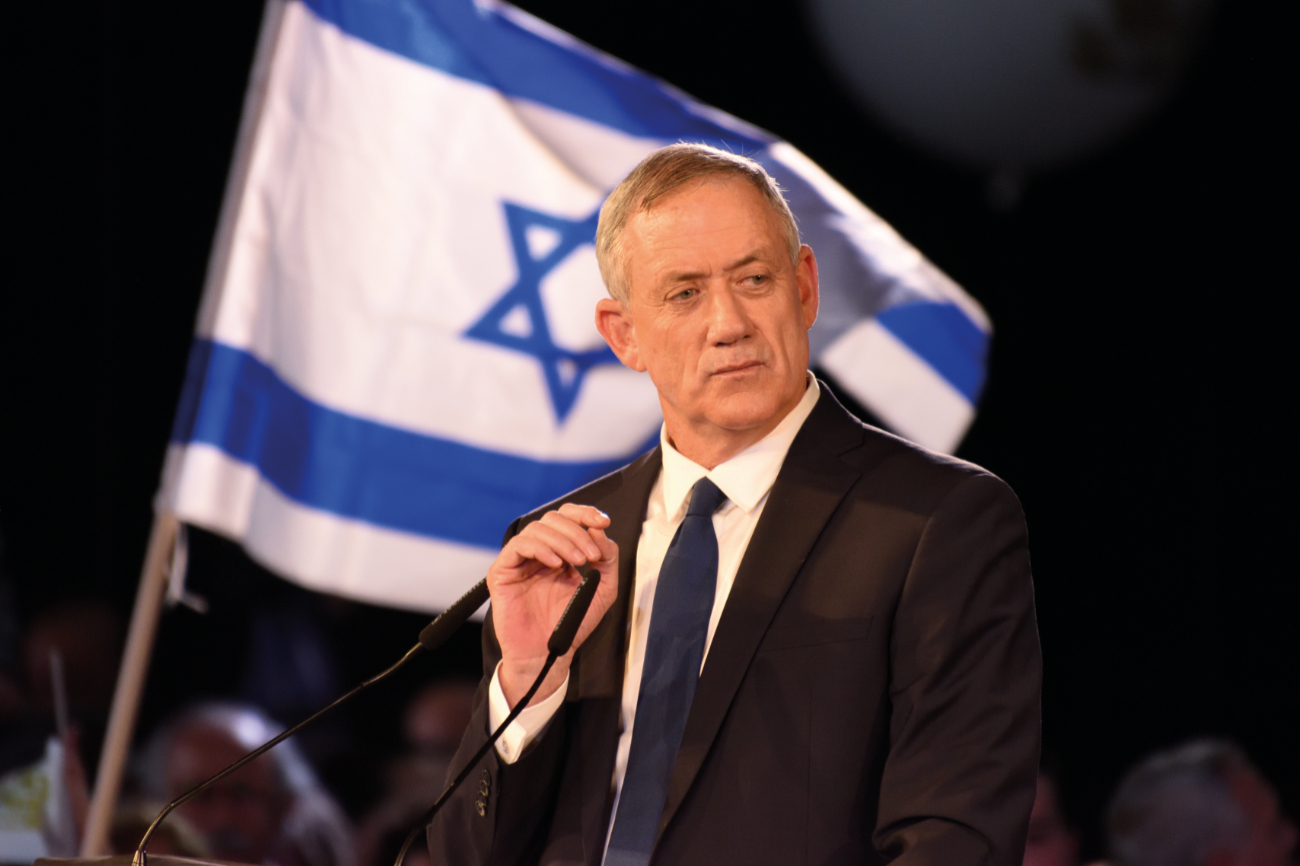
Labor-Gesher
Labor got annihilated in April. This once-great party of the Israeli left, which governed for decades and led the Opposition until recently, sank to just six seats, a fifth of the Knesset. Its hapless leader Avi Gabbay, whose pre-election antics led to a drain in support, and who appeared ready to enter a Netanyahu-led coalition after the vote, much to the chagrin of Labor members, was finally kicked out this summer and replaced by past chairman Amir Peretz.
Seen as a dinosaur by the party’s largely young following, 67-year-old Peretz is playing on his experience, including as defence minister in 2006. He has also agreed to run with Gesher, a small party set up by former Yisrael Beitenu politician Orli Levi-Abekasis, who fell out with Lieberman. The combined group could get eight seats, more if it inspires people.
Democratic Union
If this new political entity does better than expected, it could herald the return to frontline politics of former prime minister and ex-Israel Defence Forces chief of staff Ehud Barak. He is helping to headline the merged group, together with former Labor leadership hopeful Stav Shaffir and the left-wing Meretz party, which has won five to six seats in every recent election.
Meretz chairman Nitzan Horowitz tops the billing, while Shaffir, who brings her own following and has urged Israeli Arabs to “see us as your allies”, is second. Pollsters say their combined weight could win up to nine seats; others say that seems optimistic. If they were to win 10 seats, however, tenth-placed Barak would return to the Knesset, a sight few ever expected.

Orthodox Parties
Simple maths says higher birth rates among Israel’s strictly Orthodox population means more Charedi voters and more parliamentary seats for the two Orthodox parties, Shas and United Torah Judaism (UTJ). In April, they won eight seats each, whereas in 2015 they won seven and six respectively. Both parties are used to sitting in Netanyahu governments and he is used to relying on their support to form coalitions. Few expect anything to change.

Thank you for helping to make Jewish News the leading source of news and opinion for the UK Jewish community. Today we're asking for your invaluable help to continue putting our community first in everything we do.
For as little as £5 a month you can help sustain the vital work we do in celebrating and standing up for Jewish life in Britain.
Jewish News holds our community together and keeps us connected. Like a synagogue, it’s where people turn to feel part of something bigger. It also proudly shows the rest of Britain the vibrancy and rich culture of modern Jewish life.
You can make a quick and easy one-off or monthly contribution of £5, £10, £20 or any other sum you’re comfortable with.
100% of your donation will help us continue celebrating our community, in all its dynamic diversity...
Engaging
Being a community platform means so much more than producing a newspaper and website. One of our proudest roles is media partnering with our invaluable charities to amplify the outstanding work they do to help us all.
Celebrating
There’s no shortage of oys in the world but Jewish News takes every opportunity to celebrate the joys too, through projects like Night of Heroes, 40 Under 40 and other compelling countdowns that make the community kvell with pride.
Pioneering
In the first collaboration between media outlets from different faiths, Jewish News worked with British Muslim TV and Church Times to produce a list of young activists leading the way on interfaith understanding.
Campaigning
Royal Mail issued a stamp honouring Holocaust hero Sir Nicholas Winton after a Jewish News campaign attracted more than 100,000 backers. Jewish Newsalso produces special editions of the paper highlighting pressing issues including mental health and Holocaust remembrance.
Easy access
In an age when news is readily accessible, Jewish News provides high-quality content free online and offline, removing any financial barriers to connecting people.
Voice of our community to wider society
The Jewish News team regularly appears on TV, radio and on the pages of the national press to comment on stories about the Jewish community. Easy access to the paper on the streets of London also means Jewish News provides an invaluable window into the community for the country at large.
We hope you agree all this is worth preserving.
- News
- Features
- News Features
- Benny Gantz
- Kulanu
- David Ben-Gurion
- Ayelet Shaked
- Rafi Peretz
- Israel’s Supreme Court
- Naftali Bennett
- Bezalel Smotrich
- yisrael beitenu
- Yamina
- avigdor lieberman
- Joint List
- Ayman Odeh
- Yair Lapid
- Avi Gabbay
- Amir Peretz
- Orli Levi-Abekasis
- shas
- United Torah Judaism (UTJ)
- ehud barak
- Meretz
- Stav Shaffir
- Nitzan Horowitz
- Israel Elections 2019
- Israeli Prime Minister Benjamin Netanyahu
- Likud Party
-
By Laurent Vaughan - Senior Associate (Bishop & Sewell Solicitors)
-
By Laurent Vaughan - Senior Associate (Bishop & Sewell Solicitors)
-
By Laurent Vaughan - Senior Associate (Bishop & Sewell Solicitors)
-
By Laurent Vaughan - Senior Associate (Bishop & Sewell Solicitors)



